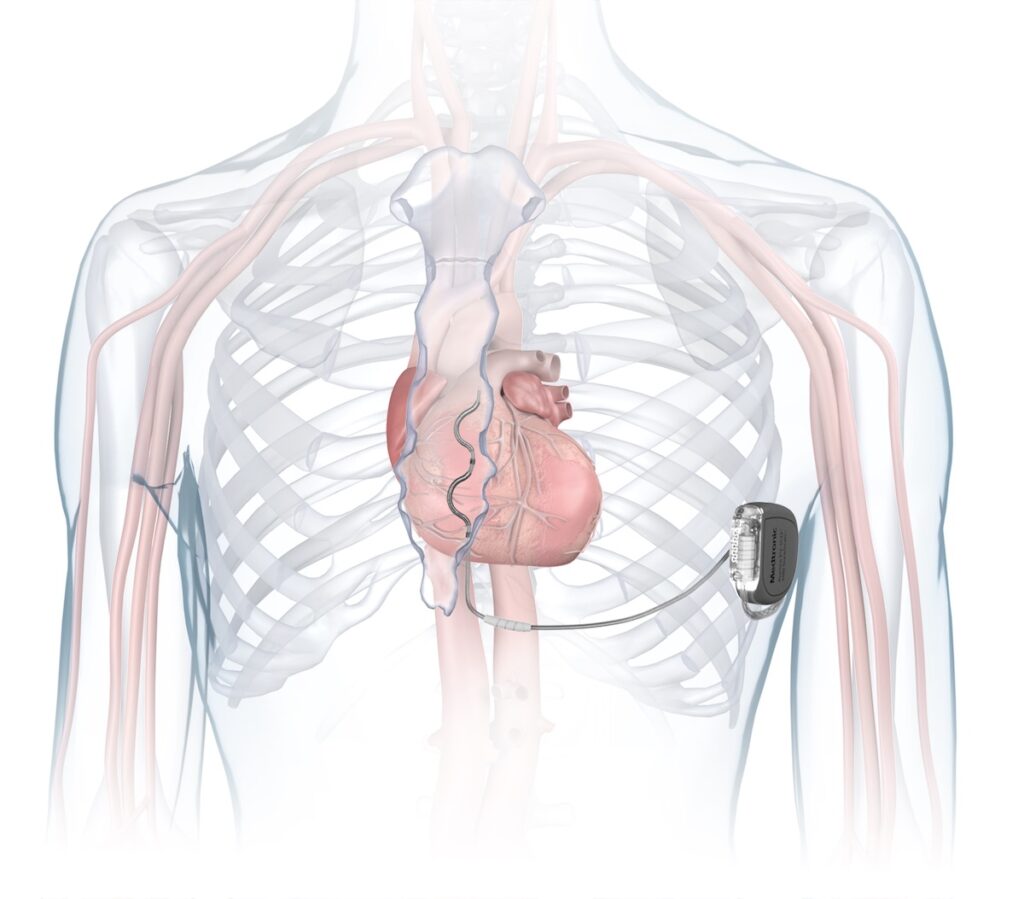A revolutionary procedure at Cardio-Thoracic Centre to treat heart arrythmia

It is an extravascular defibrillator, which is much less invasive than classic transvenous defibrillators.
It is a first in the Principality, but also in France! Dr. Alexandre Azmoun, thoracic and cardiovascular surgeon at the Cardio-Thoracic Centre in Monaco, and Dr. Nazih Benhenda, a cardiologist specialising in interventional rhythmology at the Princess Grace Hospital Centre (CHPG), were the first to successfully implement the new Medtronic Aurora EV-ICD extravascular defibrillator, in November.
This system, which is less invasive than traditional defibrillators, is used to treat patients with dangerously fast heart rates, which can lead to cardiac arrest. Use of the new defibrillator is limited to patients who are often relatively young, have severe heart rate dysfunction, who can no longer able to be treated with drugs and have not undergone sternotomy surgery (cutting open the sternum).
More comfortable, less risky and easier to monitor
The Aurora EV-ICD consists of a device and a probe, implanted in a single procedure under general anaesthetic. Since the housing is implanted under the left armpit, not into the heart or vascular system, it is a minimally invasive approach. It also avoids long-term complications that can occur with transvenous probes, such as blocked vessels, probe infection, and endocarditis (a heart infection).

The device is placed under the left armpit – © Medtronic
This new device is also smaller than its predecessors and has a longer service life, between eight and ten years. A permanent remote monitoring system enables the probe to deliver an electric defibrillation shock to deal with fast heart rates, as the anti-tachycardic stimulation manages to stop certain types of ventricular tachycardia and removes the need for defibrillation shocking, as well as temporary stimulation to prevent pauses in sinus rhythm.
Data from the device is transmitted to the cardiologist every 24 hours for continuous patient monitoring.
The patient, meanwhile, has a much better quality of life. All patients with severe heart rhythm dysfunction can now undergo this procedure at the Cardio-Thoracic Centre in Monaco.









